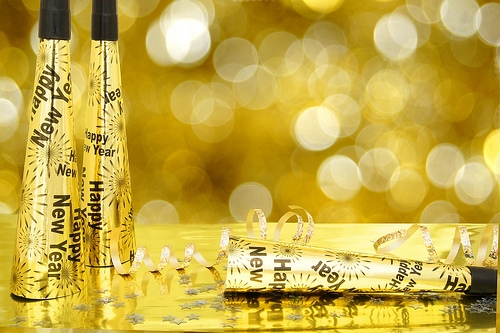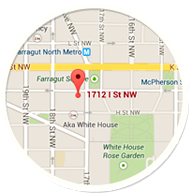Do adults need fluoride treatments?
January 21st, 2015

Many dentists and hygienists recommend fluoride treatments for their adult patients. You might ask yourself, “Do I really need a fluoride treatment? I thought those were just for my kids.” After all, most insurance plans cover fluoride treatments only up to the age of 18.
What you need to know as a dental consumer is that studies have shown topical fluoride applications performed by a dental professional create a significant benefit for adults who have moderate to high risk for cavities.
There are several circumstances that warrant extra fluoride protection among adults. Many prescription medications reduce saliva flow or otherwise create dry mouth. A reduction in saliva increases cavity risk.
Adults often experience gum recession, which exposes part of the root surface of teeth. These areas are softer than the hard enamel at the top of the tooth, which makes them more susceptible to decay.
In addition, adults often get restorative work such as crowns or bridges. Fluoride can help protect the margins of these restorations, ultimately protecting your investment.
Today many people opt for orthodontic treatment (braces) as adults. Braces make it more challenging for patients to maintain good oral hygiene. Just ask your kids! Fluoride can keep the teeth strong and cavity-free even with the obstacle of orthodontic appliances.
Have you had a restoration done within the last year due to new decay? If you have, that puts you at a higher risk for cavities. Fluoride treatments are a great way to prevent more cavities in patients who are already prone to them.
How is that flossing coming along? You know you should floss daily, but do you? If your oral hygiene is not ideal, fluoride could be just the thing to keep your neglect from leading to cavities between your teeth.
Fluoride can also help with the growing problem of sensitive teeth. Diets high in acidic foods and beverages, general gum recession, and increased use of whitening products all tend to produce sensitive teeth. Fluoride treatments re-mineralize tooth enamel and reduce that sensitivity.
Patients who undergo radiation treatment for cancer also benefit from topical fluoride applications. Radiation damages saliva glands, thus greatly reducing the flow of saliva. Saliva acts as a buffer against the foods we eat and beverages we drink. Once again, less saliva greatly increases the risk of cavities.
If one or more of these conditions applies to you, consider requesting a topical fluoride treatment. Be sure to ask Dr. Harvey Levin at your next appointment whether you might benefit from a topical fluoride application.
I have fluoride toothpaste and fluoridated water; do I need a fluoride treatment?
January 14th, 2015

Fluoride is a naturally found ion with a history of greatly reducing the incidence of tooth decay in children. However, over the past decade, people have increasingly consumed bottled water, most of which does not contain fluoride, and children are no longer getting the recommended dosage of fluoride. In addition, many areas do not add the optimum amount of fluoride to the town drinking water.
Everyone’s dental needs are different. The amount of fluoride a person needs is determined by age (children), tooth sensitivity, risk for cavities, and medical conditions. When a patient needs additional fluoride it can be applied in a foam or varnish.
Children receive additional topical fluoride because teeth in the early development stages have a higher mineral uptake. The future strength of the enamel depends on this. When a tooth absorbs the fluoride ion, it creates hydroxyapatite, a harder mineral compound than enamel alone.
Those who have a dry mouth from medication also need extra fluoride. A daily fluoride rinse and a semi-annual fluoride varnish treatment are standard. If you are on medicine for high blood pressure, anxiety, diabetes, depression, or cholesterol, you may fit in this category.
Cancer treatments can also greatly impact your oral health. Fluoride varnish treatments prior to, during, and after radiation and chemotherapy can be beneficial. There are other mouth conditions which coincide with cancer treatments which make it difficult to brush and floss daily, and can contribute to an increased risk for decay. An infection during cancer treatment can be especially harmful, which is why preventive measures are important.
Fluoride treatments, administered topically, are highly beneficial in preventing decay. Feel free to call Harvey M Levin, DDS to schedule an appointment or if you have any questions.
Are you a candidate for dental implants?
January 7th, 2015

When you are missing teeth, it is critical to replace them. Without all your teeth, chewing and eating can be challenging, as well as uncomfortable. Missing teeth can also destabilize your bite. Dental implants are a great option for replacing teeth that are missing or are badly diseased. A dental implant at Harvey M Levin, DDS offers relief, support, and stability to your bite, and often, implants are the most natural and effective option available.
Dr. Harvey Levin and our team have helped many patients using implant dentistry at our Washington, DC office restore their smiles to look more natural. Each implant is created to fit in perfectly with the look of the rest of your teeth.
Besides making your smile appear more natural, dental implants have other benefits. They include:
- Restoring your ability to properly chew food
- Preventing your teeth from shifting and moving
- Stabilizing your bite, helping you avoid pain or discomfort
If you are missing a tooth or multiple teeth and feel like you are a candidate for dental implants, Dr. Harvey Levin and our team at Harvey M Levin, DDS encourage you to give us a call to schedule an appointment. See you soon!
New Year's Eve
December 31st, 2014

Watching the clock tick down the final seconds until midnight, many of us- Harvey M Levin, DDS included- feel nostalgic about the passing year and hopeful about the new one to come. New Year’s Eve is one of the most widely celebrated holidays in the world, with over-the-top celebrations taking place in dozens of countries. The Gregorian calendar, which is widely used in Western nations and around the world, was implemented in 1582. Since that time, December 31st has marked the final day of the year, with midnight heralding the beginning of a brand new year. In the United States, New Year’s Day is a public holiday; government offices, schools, public organizations, and many businesses are closed for the day. Ponder the following fun facts as you think about your plans for the holiday:
- Approximately one billion people watch the New Year’s Eve ball drop in Times Square, New York City. This televised event is one of the most iconic New Year’s celebrations in the world. For many years, watching the ball drop meant tuning in to Dick Clark’s Rockin’ New Year’s Eve, an iconic television special dear to the hearts of many viewers.
- The idea for the New Year’s Eve ball came about because of a citywide ban on fireworks. Before 1907, when fireworks became illegal in New York City, celebrations included an elaborate fireworks show. The large, glittering, illuminated ball was developed as an alternative. Although the first ball was heavy at 700 pounds, the modern New Year’s Eve ball is made of Waterford crystal and tips the scale at six tons!
- The top five New Year’s resolutions are: to lose weight, quit smoking, get a new job, return to school, or increase personal savings. However, approximately 88% of New Year’s resolutions fail. But don’t let that discourage you! Resolutions are most likely to succeed when they are clear, achievable goals. Setting out a concrete plan to achieve your resolution also boosts your chances of success.
- Eating black-eyed peas on New Year’s Day is said to bring good fortune in the new year. Collard greens, cabbage, and ham hocks are also considered lucky foods to enjoy. Just steer clear of the chicken or turkey dinners; eating poultry is a bad omen for the year to come.
Whether you plan to stay in Washington, DC, or head out into the crowds to watch the ball drop in Times Square, New Year’s Eve is a time to enjoy friends and family. Send your loved ones well wishes for the New Year, and look for that special someone to share a midnight kiss with for good luck!










